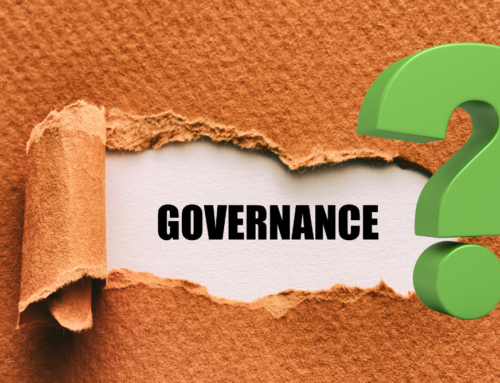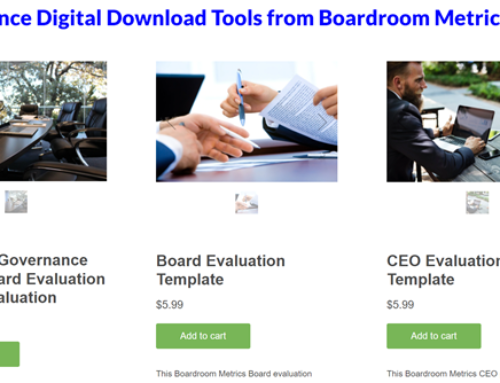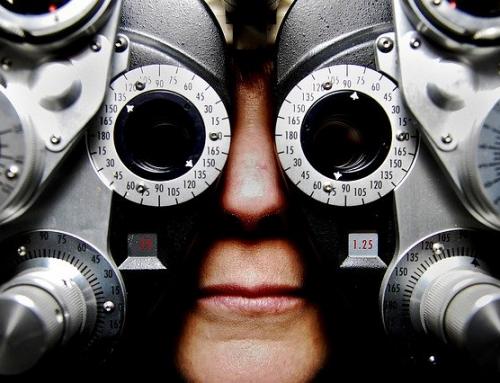Boardroom Metrics provides corporate governance consulting to public, private and not-for-profit clients in the US and Canada.
Has your Board done a self-assessment? What did it show? Is there a danger your Board is over-rating its governance abilities?
 There are several (obvious?) reasons why Board self-assessments are dangerous.
There are several (obvious?) reasons why Board self-assessments are dangerous.
- Lack of competency. The truth is, most Boards and most Directors struggle with key concepts of corporate governance. If you’ve ever seen two Boards or two Directors define their role consistently, let us know. We haven’t. Corporate governance is one the most misunderstood undertakings of modern business. Asking Directors who don’t understand corporate governance to rate their own ability to do it, is like asking most people if they are good drivers. In all likelihood they think they are!
- Fear of standing out. I recently had the opportunity to participate in a Board self-assessment – and chose not too for fear of standing out. I suspected that my ratings would be significantly different from the rest of the Board’s. I feared that as a newer Board member, my ratings would be discounted based on my tenure and decided I needed to find a more effective way to make my views known. When the survey results came back, even I could not have imagined how misaligned I was with the rest of the Board.
- Self-interest. Picture this. You’ve been on a Board for five years. You’re now the Chair. Recently the Board has started a self-evaluation. Are you really going to rate the Board’s governance ability as lacking? Likely not. The same applies to anyone who has been on the Board a significant period of time or devoting a significant amount of time to their Board role. Some Directors actually see it as their obligation to ‘support’ the Board’s contribution by over-rating its governance competency. This is a nice gesture that is very unhelpful.
It’s not too difficult to see how false positive self-assessments kill corporate governance. If an incompetent Board rates itself as doing a great job, how will it ever get better? I can tell you that in the example above, discussion of the Board self-assessment would have taken less than five minutes if I hadn’t chosen to intervene. There was no identification of key opportunities for improvement or any formal plan for improvement. Clearly, the conclusion reached by the Governance Committee was ‘Hey. When we’re this good, why bother?’
How to Make the Board Self-Assessment More Effective
Two ideas:
- Identify five to seven key questions from the assessment. Prior to distributing the Board self-assessment to be completed on an individual basis, use a big chunk of a Board meeting to discuss how the Board would rate itself on those five to seven key questions. In the meeting, provide a few minutes for Directors to do their rating, then facilitate a Board discussion about their ratings. Encourage different points of view – what are we missing?; what evidence do we have for that rating?; what could we do differently? This exercise will ensure that Directors are more thoughtful, truthful when they get a chance to do their own private assessment.
- Engage someone who is knowledgeable and objective to participate in the discussion. This could be a consultant, past Board-member, friend of the organization. This person’s role is to bring governance knowledge and objectivity to the discussion. It helps the Board move beyond it’s own competency and self-interest to take a better, harder look at how they are doing. It really helps if this person has some previous knowledge of the Board’s competency.
Board self-assessments provide a positive opportunity for the Board to address governance effectiveness. However, Board self-assessments are useless – even dangerous, if the Board does not rate itself accurately.







Leave A Comment